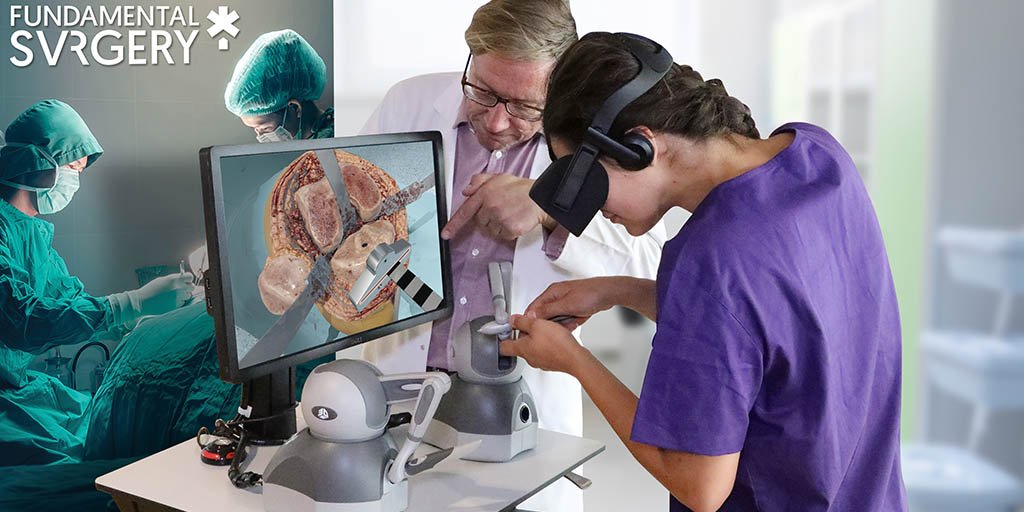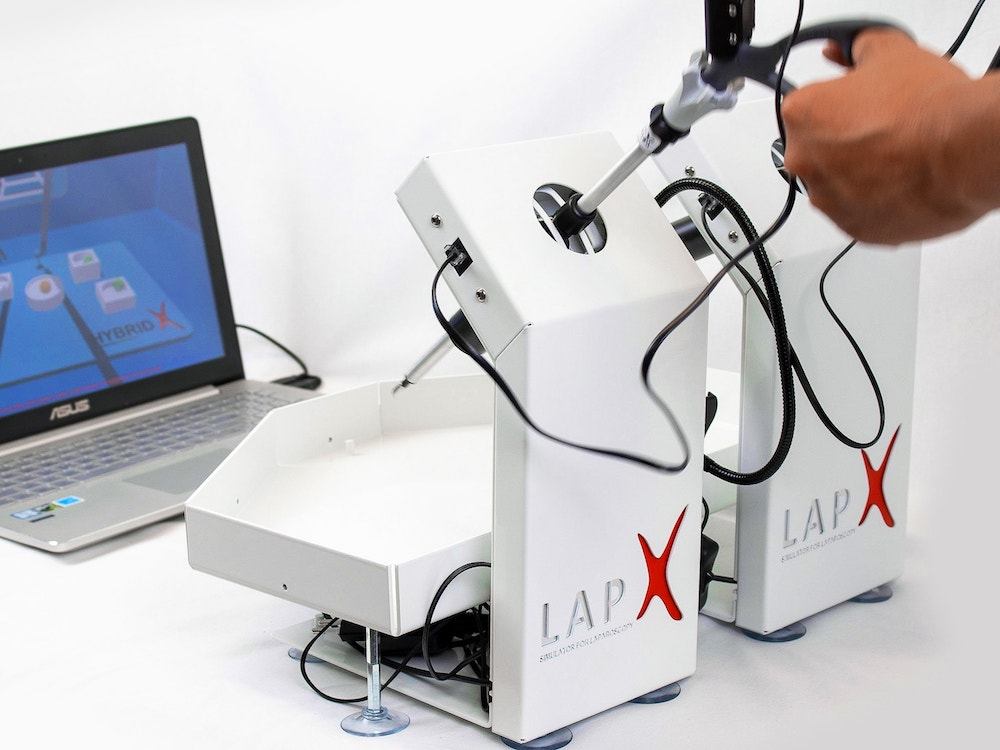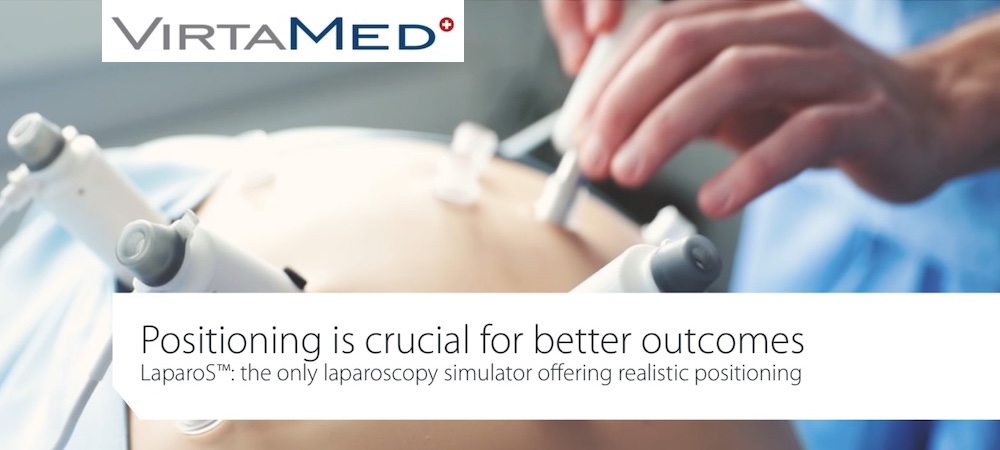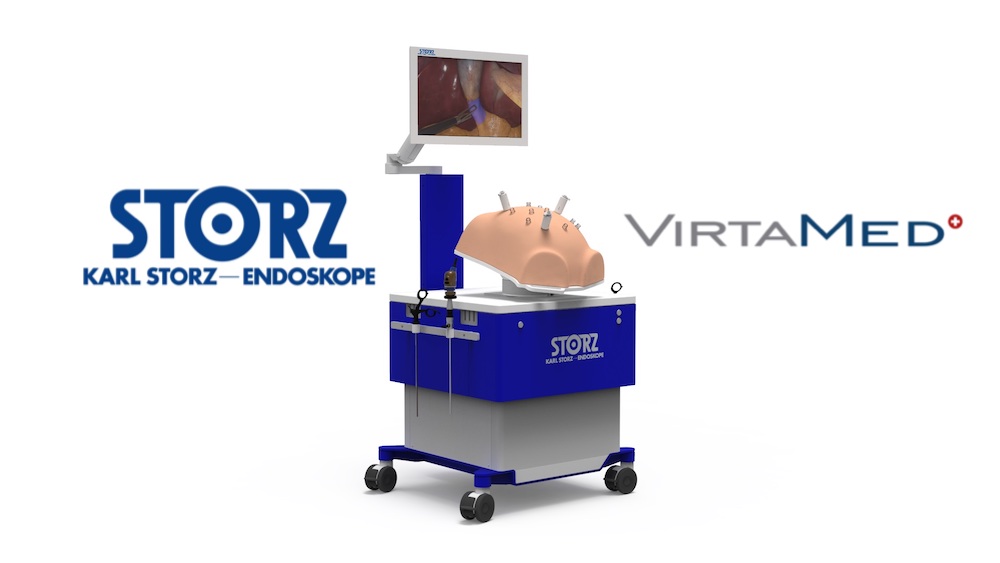Recently the popular website Verge covered the recent US launch of FundamentalVR, whose founders compare the realism of their product to regulated aviation flight simulators thanks to their haptic feeling feedback with Surgical VR simulation. Haptic VR should be considered as a definitive part of the future of healthcare simulation technologies, and so its great to see such new products receiving such leading press attention. Imagine you put on haptic gloves, and a headset, with MRI scans of the actual patient your team is about to operate on, and simulated the complicated part of the procedure with live streaming feedback from team-members and instructors, all from the comfort of your home. That day is coming, and FundamentalVR is bringing it one step closer.
Verge Article Interview Excerpt:
Haptic feedback or “haptics” is the deployment of vibration or physical resistance to engage your sense of touch when using technology. The most common example is your phone’s vibrate function, which buzzes to let you know when a friend is calling or if the president has just tweeted out the nuclear codes. But in virtual reality, haptic feedback does so much more, adding a physical dimension to the simulated world.
With FundamentalVR’s technology, when you run your VR scalpel up and down a VR spine, the resistance created by the handheld peripherals means you can feel the tip of the knife bouncing off each vertebra. It’s not a seamless experience, and if you push hard enough you’ll go right through your patient (which, fair enough, could also happen in real life). But it’s certainly much more immersive than operating on empty air.
FundamentalVR has a panel of medical experts, including active surgeons, who help to calibrate this experience, tweaking the levels of resistance in the simulation so that they recreate the physical experience as closely as possible. “Surgery is about sight and touch, and if you’ve got a simulator that only has one of those two, you’ve only got 50 percent of the experience,” says Vincent. This is a big part of FundamentalVR’s pitch, but the company also has another important selling point: the cost. While the current going price for a haptic-enabled VR surgeon simulator is around $100,000 (with maintenance costs of $25,000 a year), the hardware needed to run FundamentalVR’s system can be bought for around $7,500, with subscription fees in the hundreds of dollars.
And getting VR surgery simulators into more hospitals might only be the beginning. In the future, says Vincent, modeling software might allow the company to turn patient’s data (like CT and MRI scans) into 3D models that can be inserted into the simulation. This would allow surgeons to practice operations on a facsimile of their patient, potentially reducing risk even further. Vincent stresses that this is just a sketch of what’s technically possible, not an active area of research, but it’s a tantalizing concept.
About FundamentalVR
FundamentalVR is providing clinical teaching excellence through cutting edge virtual reality and haptic training experiences led by their expert medical panel. Comprised of leading surgeons in the field and academic institutions, their medical panel helps to inform and direct our platform and simulation development. Fundamental Surgery is their flagship SaaS service delivering a ‘flight simulator for surgery’ which combines a cutting edge VR experience with haptic feedback to create a near real operating experiences. This creates a safe, measurable and repeatable involvement with medical procedures all delivered onto low cost hardware meaning that simulation can be within close proximity to the clinical environment. Learn more on the FundamentalVR website.






